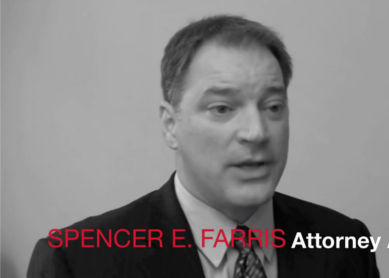Why Motorcycle Accidents Are Different | Missouri
Spencer Farris
Ok, you have the contact number of Missouri motorcycle accident lawyer, but you want to find someone else who rides, because the physics and the science of being on a motorcycle make those crashes different than a simple car crash. It’s helpful to get someone who understands what it’s like to be out there on the road and how naked and exposed you feel when you’re riding next to a three-ton car. You might be wondering how to hire a personal injury lawyer, or what kind of things you should look at. And the first thing that I tell every client, “Look, if you look around Saint Louis or Missouri, there’s probably 300 or 400 folks that will do just as good a job for you as my firm will do,” but you need to find someone that you feel comfortable working with, because you’re forming a partnership. And if you’re going to spend two or three years locked in a partnership with someone who won’t return your phone calls, doesn’t answer your e-mails, or really doesn’t care about you and thinks of you like you’re a number, no matter how qualified that lawyers is, he’s not the right lawyer for you.
You need a good mix of qualifications, and concern and caring chemistry, if you will, to get the right match so that you hire the right lawyer for you and your case. When you’ve been hurt and the bills are racking up, you don’t have to pay a lawyer out of pocket to represent you in your injury case. Call my office, and if we can help you we won’t charge you anything until the end of your case if we’re successful for you. Call 314-A-LAWYER today for a free consultation.
Ok, you have the contact number of Missouri motorcycle accident lawyer, but you want to find someone else who rides, because the physics and the science of being on a motorcycle make those crashes different than a simple car crash. It’s helpful to get someone who understands what it’s like to be out there on the road and how naked and exposed you feel when you’re riding next to a three-ton car. You might be wondering how to hire a personal injury lawyer, or what kind of things you should look at. And the first thing that I tell every client, “Look, if you look around Saint Louis or Missouri, there’s probably 300 or 400 folks that will do just as good a job for you as my firm will do,” but you need to find someone that you feel comfortable working with, because you’re forming a partnership. And if you’re going to spend two or three years locked in a partnership with someone who won’t return your phone calls, doesn’t answer your e-mails, or really doesn’t care about you and thinks of you like you’re a number, no matter how qualified that lawyers is, he’s not the right lawyer for you.
You need a good mix of qualifications, and concern and caring chemistry, if you will, to get the right match so that you hire the right lawyer for you and your case. When you’ve been hurt and the bills are racking up, you don’t have to pay a lawyer out of pocket to represent you in your injury case. Call my office, and if we can help you we won’t charge you anything until the end of your case if we’re successful for you. Call 314-A-LAWYER today for a free consultation.





